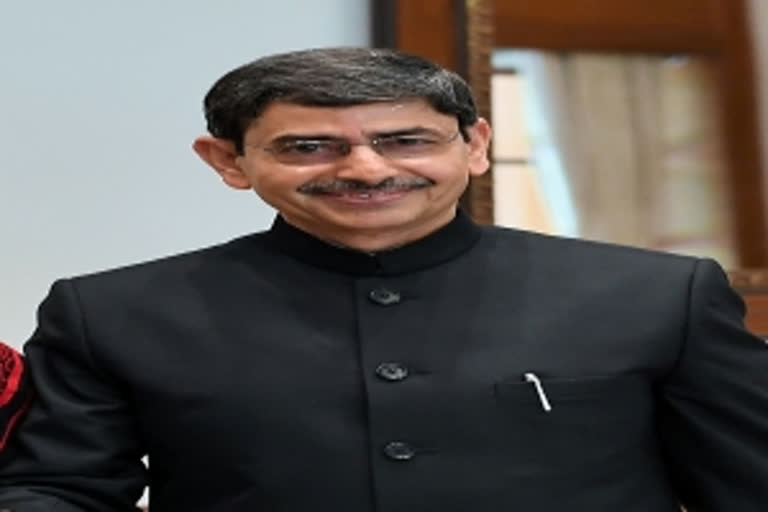New Delhi: In a further indication the final resolution to the Naga issue may be in the ‘danger zone’ and therefore quite distant as of now, Nagaland’s governor RN Ravi has sought total powers to appoint senior police and administrative officials in the insurgency-hit state.
Saying the law and order has collapsed in Nagaland due to large-scale extortion and illegal activity by ‘armed gangs’, the governor has written an unusually hard-hitting letter to state CM Neiphiu Rio just last week.
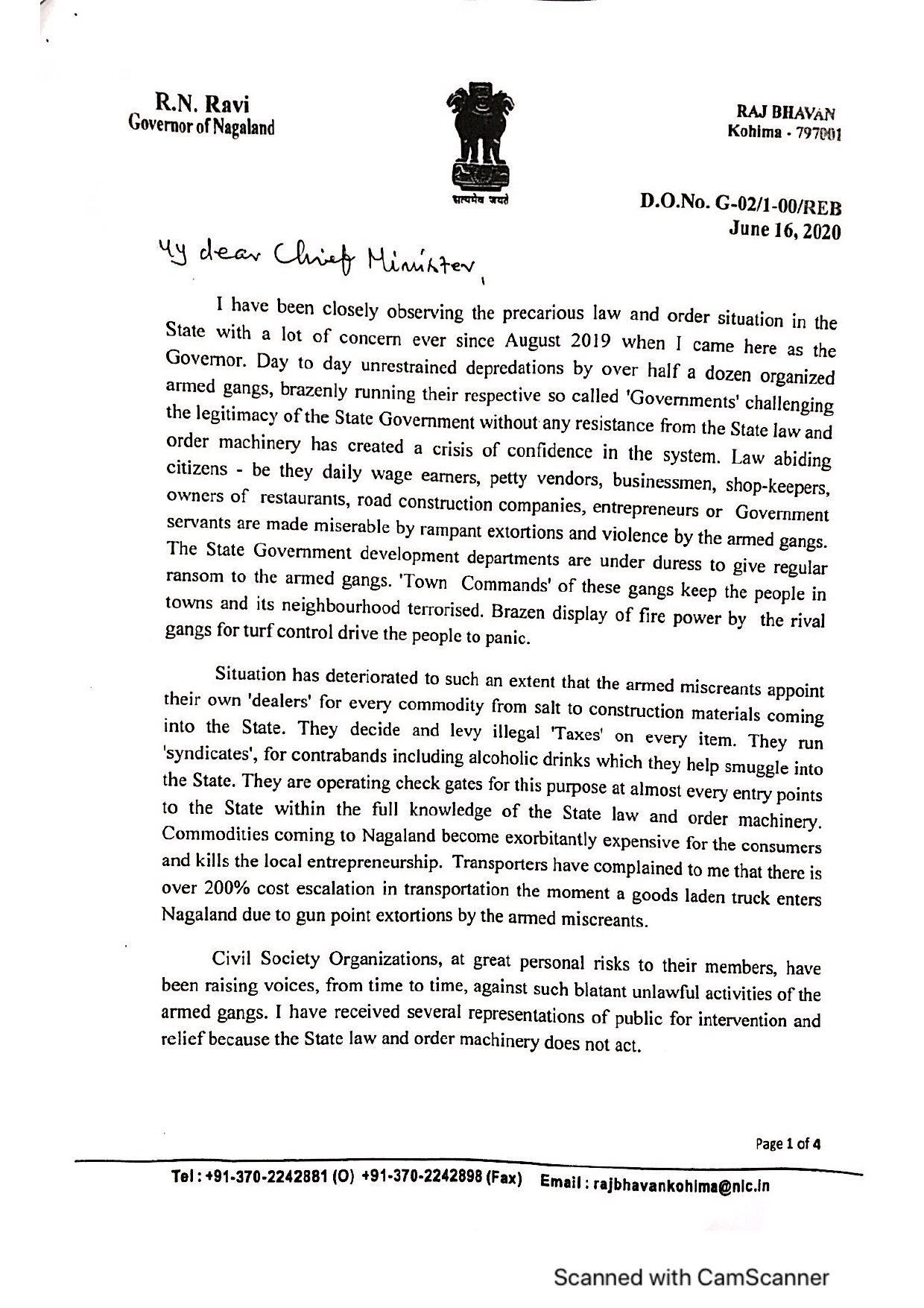
The governor has written: “The scenario in the state is grim. The law and order has collapsed, the constitutionally established state government is being challenged on a day-to-day basis by armed gangs who question the sovereignty and integrity of the nation while the instruments of law and order remain totally unresponsive.”
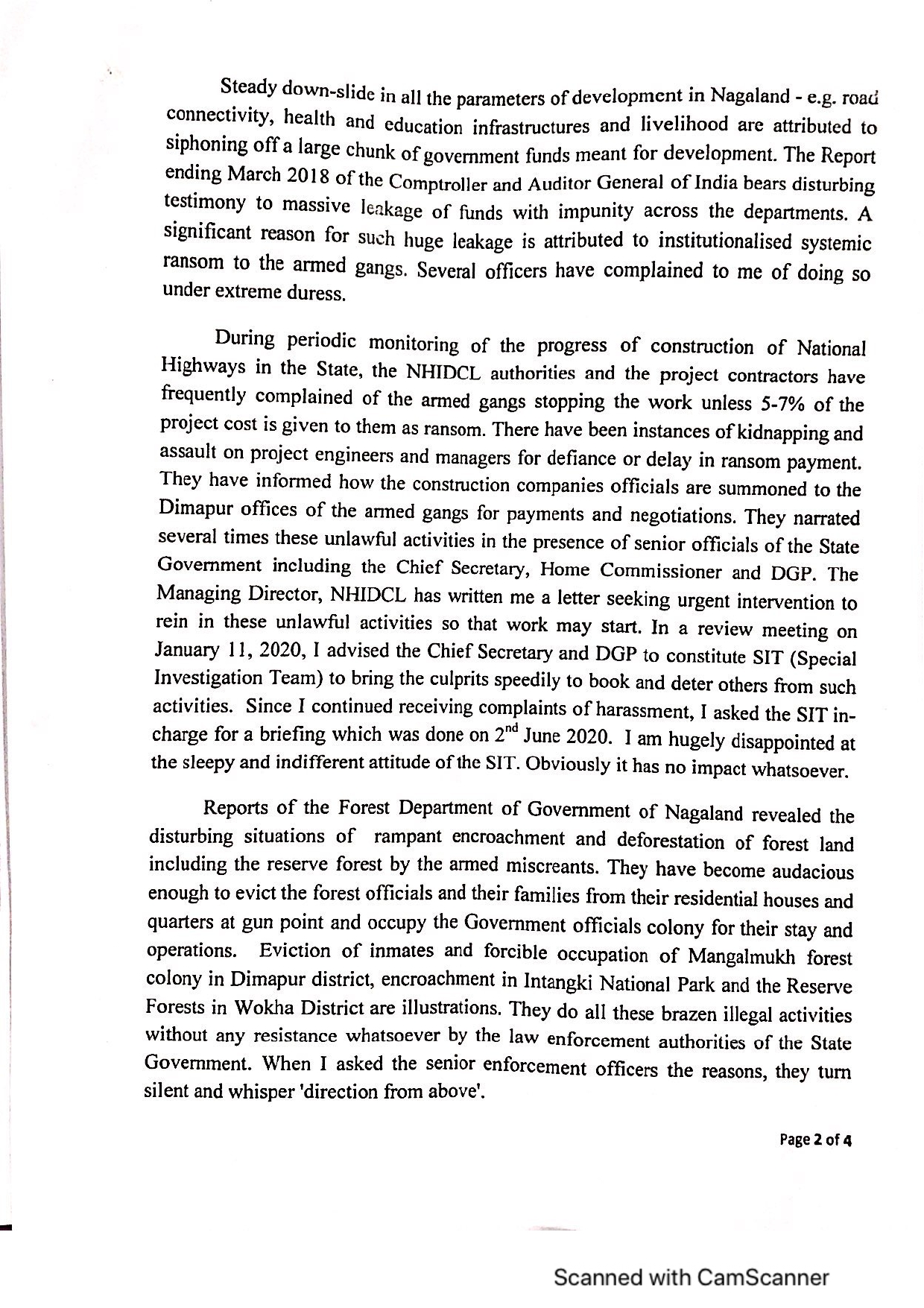
“In such a situation, I can no longer abstain from my constitutional obligations for law and order in the state under Article 371 A (1) (b) of the Constitution of India, I hereby propose that hereafter important law and order decisions like transfer and posting of officials entrusted with law and order responsibilities of and above the district level will be after the approval of the governor.”
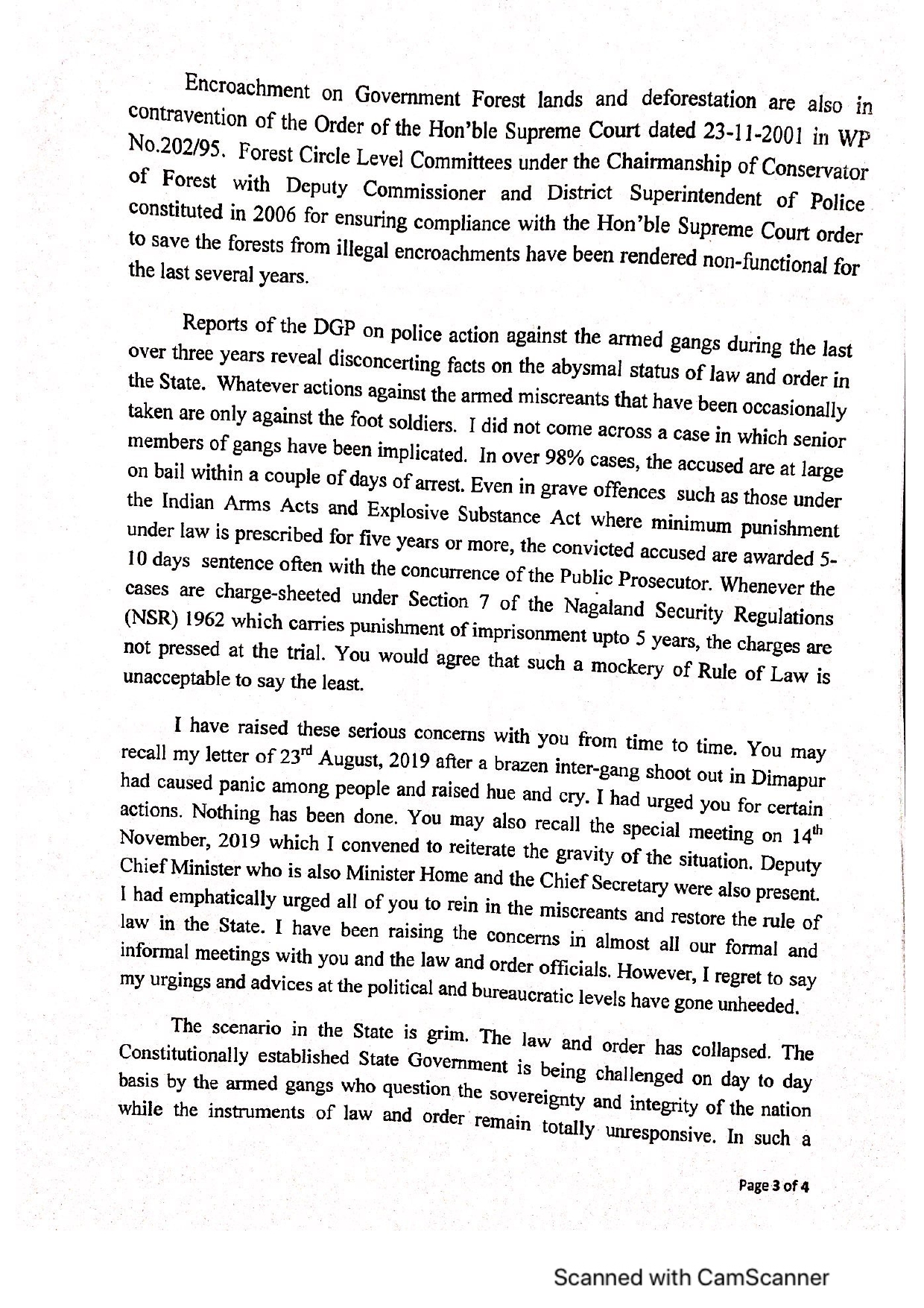
Regretting that his “urgings and advices” has gone unheeded by the political establishment and state bureaucracy, governor Ravi writes: “Day to day unrestrained depredations by over half a dozen organised armed gangs, brazenly running their respective so-called ‘governments’ challenging the legitimacy of the state government without any resistance from the state law and order machinery has created a crisis of confidence in the system… ‘Town Commands’ of these gangs keep the people in towns and neighbourhoods terrorised.”
The development may also be seen as an indication of the stalemate the talks with the dominant Isak-Muivah faction of the Nationalist Socialist Council of Nagalim (NSCN-IM) may have reached giving rise to a lot of frustration among weary Nagas.
Read: Kohima bench of Gauhati HC asks Nagaland speaker to conclude proceedings against 7 NPF MLAs
To end the nearly seven-decades-old Naga insurgency issue, talks between the Indian government and the NSCN-IM began about 22 years ago.
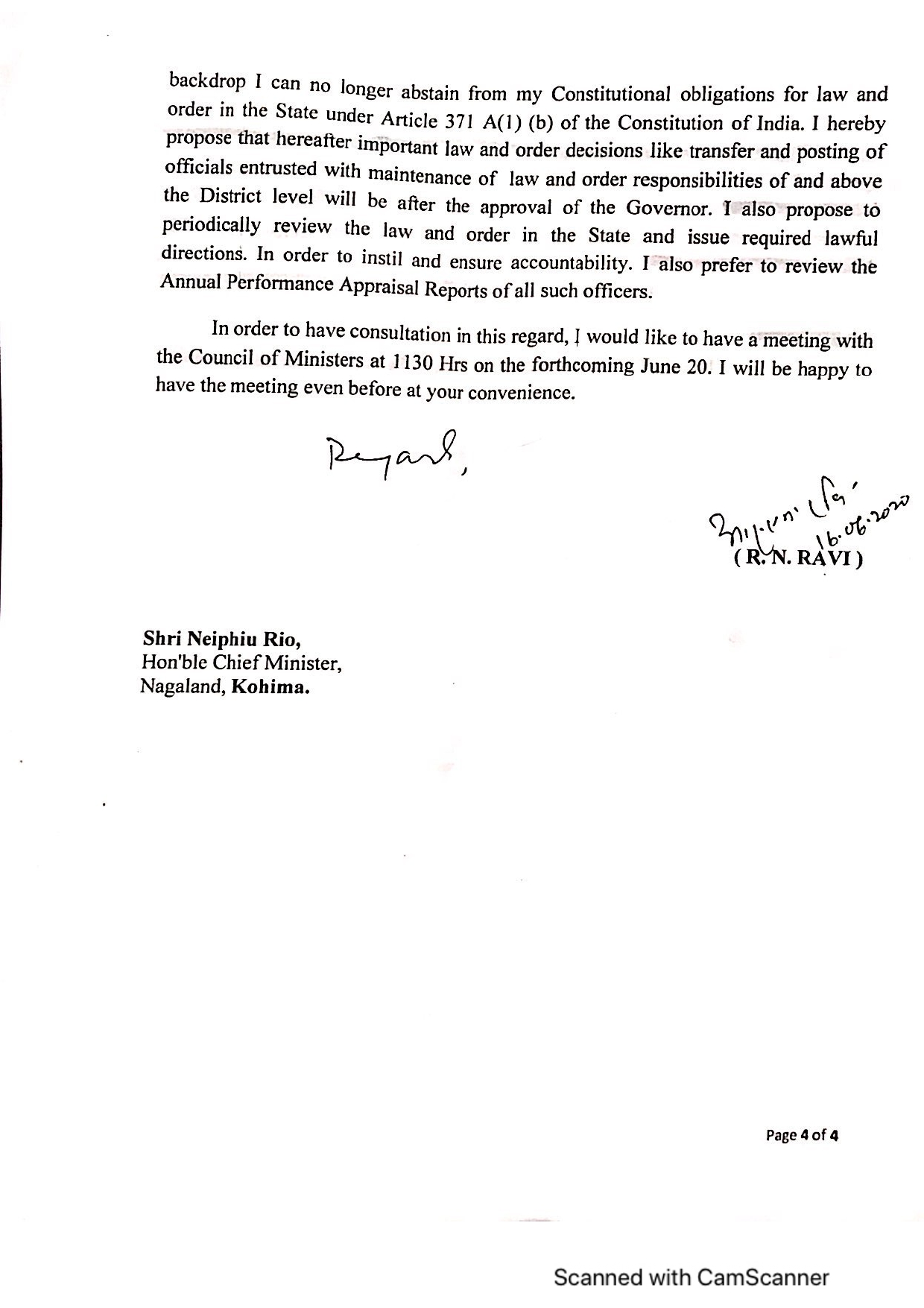
In 2015, a framework agreement was signed between the two sides but there has been not much progress evident since then despite the NSCN (IM) ‘watering down’ its original Naga demand for complete sovereignty and independence to ‘shared sovereignty’.
Its demand for a separate constitution and a separate flag has already been turned down.
The move to abrogate more powers for the governor, and by extension the Centre, comes at a very sensitive time when India is facing a lot of military tension with China across the Line of Actual Control (LAC) in eastern Ladakh.
Unprecedented mobilization of men and material is taking place even as a violent brawl between Indian Army and Chinese PLA soldiers claimed at least a score of lives on June 15 in the Galwan Valley area.
In the past, the Naga insurgency movement has had close ties with China as the Asian giant was one of the countries that the Naga insurgents had looked for help and support.
The first few batches of the Naga Underground had trained in weapons and ideology in China.
The Central government is looking at the Northeast region more closely than ever also because of its pursuance of the Act East Policy (AEP), that aims at game-changing economic and political relationships with Southeast Asian countries by emphasizing on cultural ties and affinities with Northeast India, for which peace and stability in the northeast states is a prerequisite.
However, there is also a feeling that the abrogation of greater powers is at the expense of the state governments and hence geared towards more central control.
Also Read: India is laying network of roads till China border
